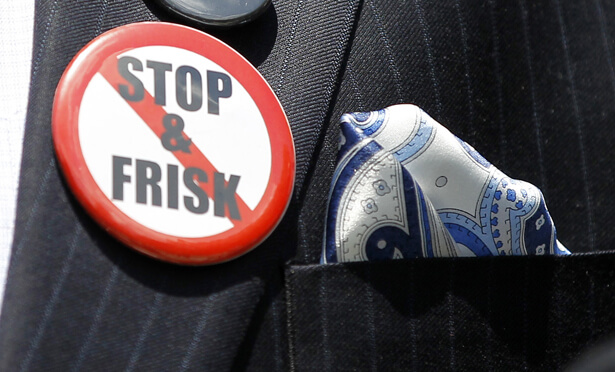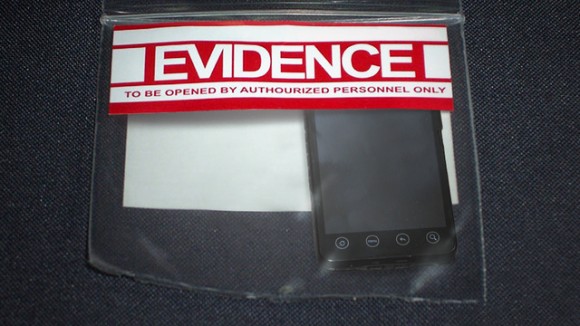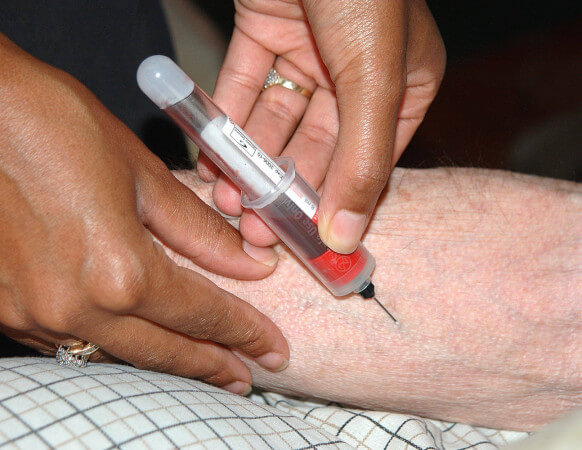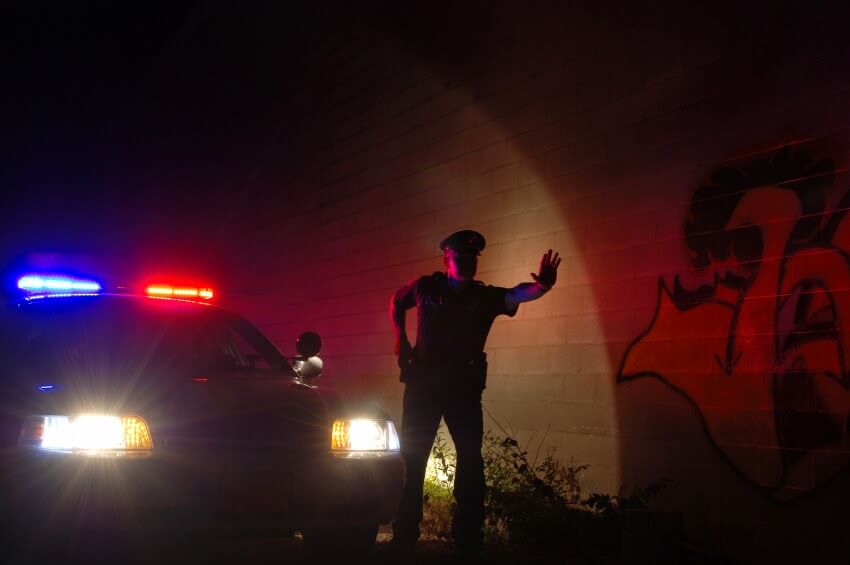
Does HIPAA Impact Fourth Amendment Standing When the State Obtains Medical Records in a Criminal Investigation?
 We’ve all signed the “HIPAA” privacy statements at the doctor’s office before treatment. The HIPAA Privacy Rule mandates nationwide standards to protect our medical records and personal health information by establishing safeguards, such as disclosure rules, patient authorization, and uniform protocols for the electronic transmission of medical data. HIPAA also grants patients the right to their own health information, but what about others? Does HIPAA prohibit the release of health information in a criminal investigation? What if that information is obtained via a grand jury subpoena?
We’ve all signed the “HIPAA” privacy statements at the doctor’s office before treatment. The HIPAA Privacy Rule mandates nationwide standards to protect our medical records and personal health information by establishing safeguards, such as disclosure rules, patient authorization, and uniform protocols for the electronic transmission of medical data. HIPAA also grants patients the right to their own health information, but what about others? Does HIPAA prohibit the release of health information in a criminal investigation? What if that information is obtained via a grand jury subpoena?
State v. Huse (Tex. Crim. App. 2016)
One Month After Car Accident, Man is Charged with DWI
On February 13, 2010, Hayden Huse ran off the road and crashed into a cotton field at two in the morning. When law enforcement responded to the scene, they smelled alcohol on Huse’s breath. Instead of giving him a sobriety test, they transported him to the local hospital for injuries he sustained. During the medical exam, the hospital ran routine blood work. A few hours later during an interview with law enforcement, Huse admitted that he consumed six or seven alcoholic drinks the previous evening. However, he refused law enforcement’s request for a breath or blood specimen for blood alcohol analysis.
One month later, based upon the police report taken of Huse’s car accident, a Lubbock County Assistant District Attorney filed an application for a grand jury subpoena to obtain Huse’s medical records from the hospital, even though no grand jury had been investigating Huse. The hospital complied with the subpoena, providing Huse’s medical records, along with a business records affidavit. The records revealed that approximately two hours after the car accident, Huse’s blood alcohol concentration was .219—an amount well above the legal limit.
Huse Files a Motion to Suppress the Evidence
Huse filed a motion to suppress the records at a suppression hearing. The trial court granted his motion to suppress on the grounds that the records were obtained in violation of the Fourth Amendment and that the Assistant District Attorney misused the grand jury subpoena process. The State appealed to the Seventh Court of Appeals, which reversed the trial court’s suppression order because “[Huse] lacked standing to raise a Fourth Amendment challenge…and [because] the State did not acquire [Huse’s] medical records through an unlawful grand jury subpoena.” State v. Huse, No. 07-12-00383-CR, 2014 WL 931265 (Tex. App.—Amarillo Mar. 6, 2014). Huse filed a petition to the Court of Criminal Appeals for a discretionary review of his case.
The Two Big Issues for The Court of Criminal Appeals
The Court of Criminal Appeals set out to determine whether the Health Insurance Portability and Accountability Act of 1996 (“HIPAA”) impacts Fourth Amendment standing when the State obtains medical records in a criminal matter, and, whether the State acquired Huse’s records via a grand jury subpoena that potentially violated HIPAA.
The Fourth Amendment and Reasonable Expectation of Privacy
Under the Fourth Amendment, “the right of the people to be secure in their persons, houses, papers, and effects, against unreasonable searches and seizures, shall not be violated.” U.S. CONST. amend. IV. “The provision protects people, not places.” Katz v. United States, 389 U.S. 347, 351 (1967). In order to raise a Fourth Amendment claim, a person must have legal standing, that may be “predicated on…a reasonable expectation of privacy principle.” United States v. Jones, 132 S.Ct. 945 (2012); Florida v. Jardines, 133 S.Ct. 1409 (2013).
State v. Hardy: The Precedent Case for the CCA
In Hardy, the CCA recognized that when the State itself extracts blood from a DWI suspect, and then subsequently conducts a blood alcohol analysis, then two “discrete searches” have occurred for a Fourth Amendment analysis. State v. Hardy, 963 S.W.2d 516 (Tex. Crim. App. 1997). The State neither extracted the sample nor conducted the blood alcohol analysis. As a result, the CCA concluded that the “Fourth Amendment does not apply to a search or seizure, even an arbitrary one, effected by a private party on its own initiative.” Skinner v. Railway Labor Exec. Assn., U.S. 602, 624 (1989). Further, “society [does not] recognize a reasonable expectation of privacy in privately-generated and maintained medical records that would show the result of a blood alcohol analysis [in a DWI investigation].” Hardy, 963 S.W.2d at 525-27.
The CCA Decides Whether HIPAA Trumps the Holding In Hardy?
Here, the CCA says that the State neither extracted nor analyzed Huse’s blood sample—the third-party hospital did. Huse, therefore, has no Fourth Amendment standing because he had no reasonable expectation of privacy in his privately-generated and maintained medical records. Further, “whatever interests society may have in safeguarding the privacy of medical records, [such interests] are not strong to require protection of blood-alcohol test results taken by hospital personnel solely for medical purposes after a traffic accident.” Id. But what about HIPAA? Does HIPAA trump the holding in Hardy?
The CCA explains that while HIPAA “might support a broader claim that society recognizes that patients have a legitimate expectation of privacy in their own medical records, generally, HIPAA does not undercut the Court’s holding in Hardy.” Further, the CCA states, “HIPAA expressly permits the disclosure of otherwise protected health information when it is sought by grand jury subpoena.”
In sum, Huse had no expectation of privacy in third-party generated and maintained medical records for a Fourth Amendment claim, and, no provisions in HIPAA specifically deny the disclosure of health information in the event of a criminal investigation. The CCA affirms the judgment Seventh Court of Appeals that Huse’s medical records shall not be suppressed.


 Although the Fourth Amendment acts as a safeguard against unlawful search and seizures, the State can still use evidence it finds against a defendant in a consensual search of their property if the search is sufficiently detached from an illegal search that purges any unconstitutional taint. Accordingly, such a search is valid if the search was voluntary and an independent act of freewill. In order to determine whether a search was an independent act of freewill, the Court analyzes several factors, none of which are controlling by themselves:
Although the Fourth Amendment acts as a safeguard against unlawful search and seizures, the State can still use evidence it finds against a defendant in a consensual search of their property if the search is sufficiently detached from an illegal search that purges any unconstitutional taint. Accordingly, such a search is valid if the search was voluntary and an independent act of freewill. In order to determine whether a search was an independent act of freewill, the Court analyzes several factors, none of which are controlling by themselves:
 The Fourth Amendment, generally, protects American citizens from unreasonable searches and seizures. Nevertheless, there are exceptions that allow police officers the ability to enter one’s home without a warrant or notice. These instances are commonly called “No-Knock” entries and are permitted only when a police officer has a reasonable suspicion that knocking and announcing their entry would be dangerous or futile.
The Fourth Amendment, generally, protects American citizens from unreasonable searches and seizures. Nevertheless, there are exceptions that allow police officers the ability to enter one’s home without a warrant or notice. These instances are commonly called “No-Knock” entries and are permitted only when a police officer has a reasonable suspicion that knocking and announcing their entry would be dangerous or futile.


 U.S. Supreme Court Holding: YES – The 4th Amendment prohibits officers from searching a suspects cell phone for information without a warrant.
U.S. Supreme Court Holding: YES – The 4th Amendment prohibits officers from searching a suspects cell phone for information without a warrant.
 Issue before the Court: “In the absence of exigent circumstances or consent, does Texas Transportation Code §724.012(b)(3)(B) violate the Texas and U.S. constitutional prohibitions against unreasonable searches and seizures where the statute requires law enforcement officers to seize a specimen of a DWI arrestee’s blood without a search warrant in all cases where the officer believes the arrestee has been previously convicted of DWI two or more times?”
Issue before the Court: “In the absence of exigent circumstances or consent, does Texas Transportation Code §724.012(b)(3)(B) violate the Texas and U.S. constitutional prohibitions against unreasonable searches and seizures where the statute requires law enforcement officers to seize a specimen of a DWI arrestee’s blood without a search warrant in all cases where the officer believes the arrestee has been previously convicted of DWI two or more times?”
 The Supreme Court said YES in
The Supreme Court said YES in 








